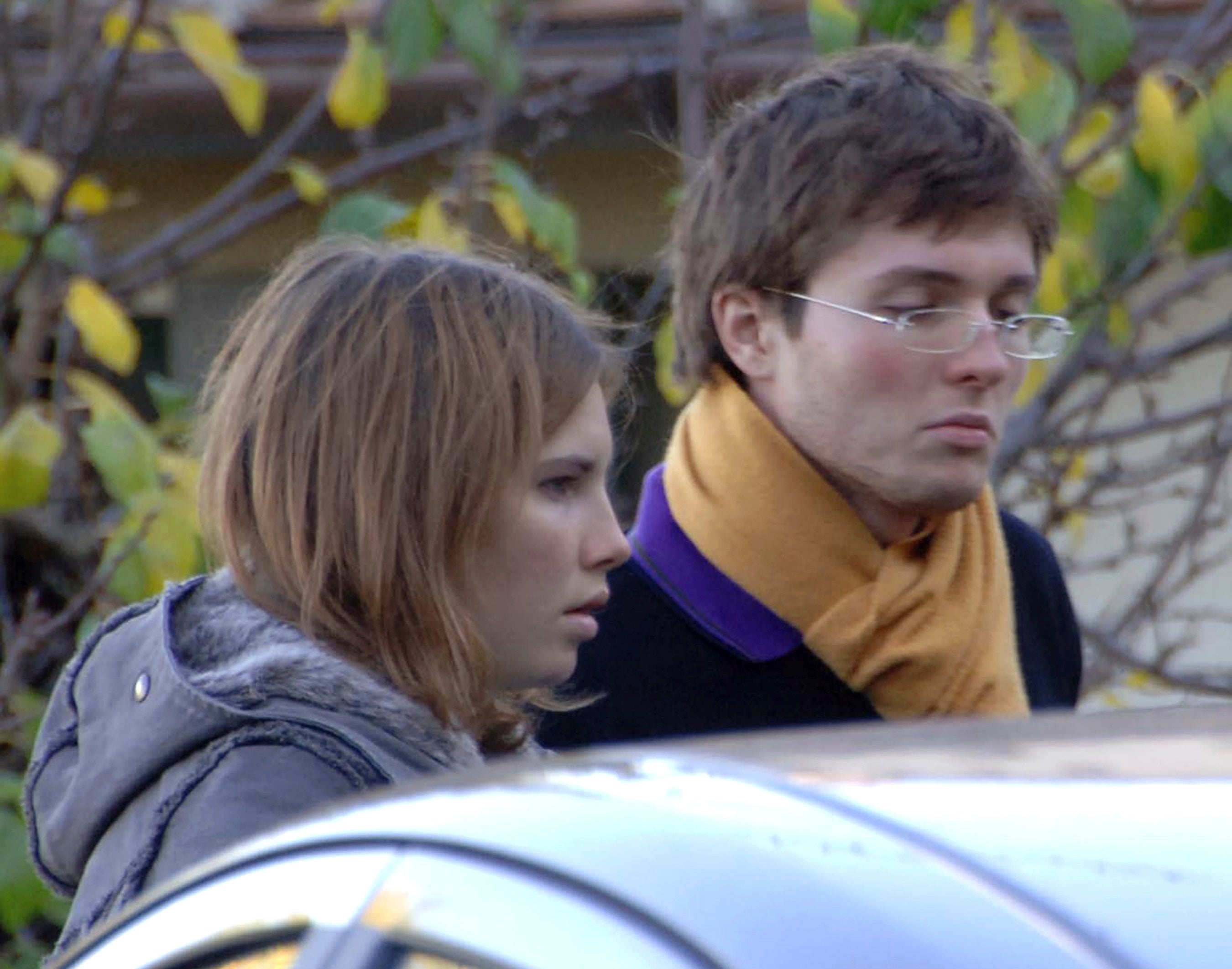Amanda Knox has been re-convicted of slander in an Italian court after accusing an innocent man in the murder of her roommate in 2007.
Knox – who was jailed for the murder before being exonerated – arrived at the Florence court on Wednesday in an attempt to overturn a conviction for slander in the last outstanding case against her.
The 36-year-old spent four years in jail for the murder of her flatmate Meredith Kercher, while the two were exchange students, before her conviction was later annulled in 2015.
She appeared in court on Wednesday for a retrial for a different aspect of the case – falsely accusing a Congolese bar owner named Patrick Lumumba of the crime – and was found by the court to have wrongly accused him.
However, Knox will not serve any more time in jail, as the three-year sentence she was originally given in the slander case was already covered by the time she previously served.
Knox appeared to be in tears while arriving, and was jostled – and apparently hit in the head by a camera – by members of the media who mobbed her as she entered the Italian courtroom for the first time in over a decade.
Yet, by the time the verdict was read aloud, she showed no visible emotion.
Her lawyer, Carlo della Vedova, said shortly afterward, according to the Associated Press that “Amanda is very embittered.”

Kerche was found stabbed to death on November 2, 2007, in her locked bedroom in an apartment she shared with Knox and two other roommates.
Knox and her then-boyfriend, Raffaele Sollecito, were convicted of her murder but were eventually cleared after a top court in Italy annulled the convictions in 2015.
Another man, Rudy Guede, whose DNA and footprints were found at the scene, was convicted in Kercher’s murder in 2008 and was released in 2021 after serving 13 years in prison.

Earlier in the latest hearing, Knox accused the Italian police of threats and violence, claiming that police wanted her to blame Lumumba, Reuters reported.
“The police threatened me with 30 years in prison, an officer slapped me three times saying ‘Remember, remember,’” Knox told the court.
“I’m very sorry that I wasn’t strong enough to withstand the pressure from the police,” she added.
“I didn’t know who the murderer was. I had no way to know,” she told the eight-judge panel and jury members.

Before Knox appeared in court, she wrote on X on Monday that “On June 5th, I will walk into the very same courtroom where I was reconvicted of a crime I didn’t commit, this time to defend myself yet again.”
“I hope to clear my name once and for all of the false charges against me. Wish me luck. Crepi il lupo!” she wrote, using an Italian phrase similar to the English “break a leg”.
Knox, from Seattle, had recently arrived in Perugia, Italy in 2007 when she endured a long night of questioning over the murder, despite having only rudimentary Italian language skills.

In 2019, the European Court of Human Rights ruled that there had been procedural errors during the questioning and Italy’s top court last year ordered a new trial in the slander case.
Italy’s highest court threw out a slander conviction in the fall of 2023, which carried a three-year sentence.
The continuing saga of the murder case has captured headlines for years and has been turned into books and movies as the case unfolded.
Knox’s 2007 accusation against Lumumba, whose bar she worked at at the time, appeared in statements typed by police that she signed, but which have been ruled inadmissible in the new trial by Italy’s highest court.

She recanted the accusation in a four-page handwritten note in English penned the following afternoon — the only evidence the court can rule on. Despite her attempts at walking back the accusation, Lumumba was picked up for questioning and held in jail for nearly two weeks.
This time around, the court was ordered to disregard two damaging statements typed up by police and signed by Knox during the 2007 questioning, in which she said she remembered hearing Kercher scream and pointed toward Lumumba for the murder – the statements that she said she was “doubtful” of the following day due to them being made under “pressure of stress, shock and extreme exhaustion.”


